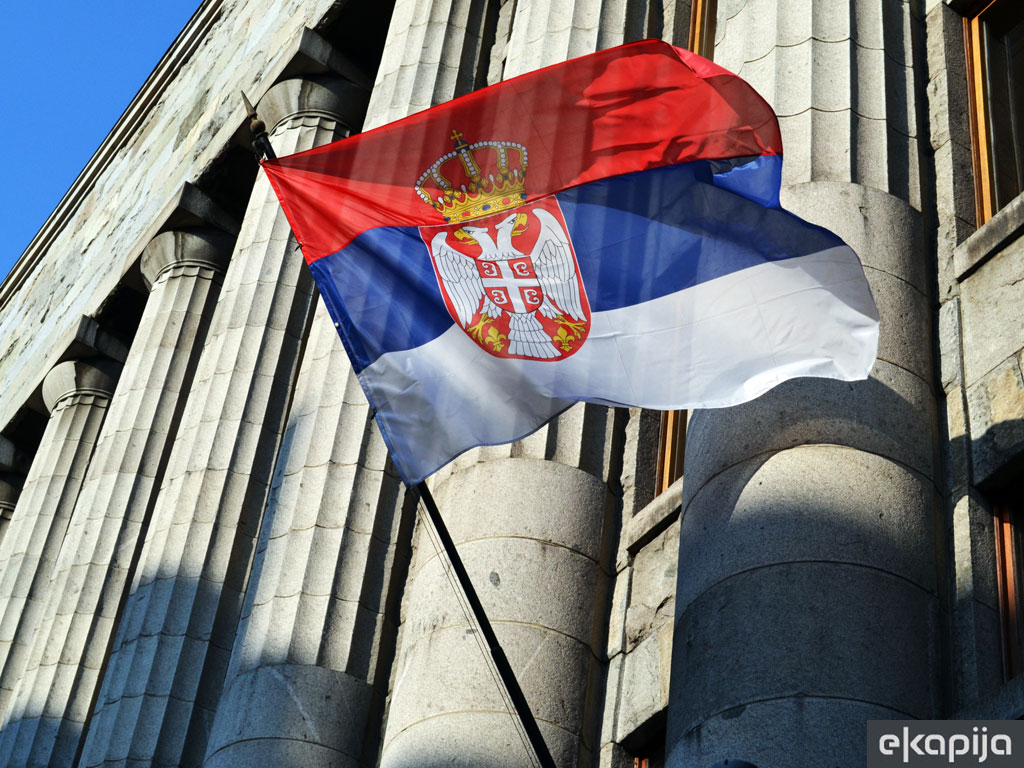Serbia - a rising star
 Sunday, 06.07.2014.
Sunday, 06.07.2014.
 13:29
13:29

And just 20 years ago, Serbia was again the focus of the world’s attention as a major player in the Yugoslav Wars.
But the Serbs would know all this: they had clocks 600 years before the Swiss did.
Of course there are other, interesting, non-deadly things to know about Serbia. Some are facts, like Serbia being the world’s largest exporter of raspberries, others are fancies, like how Belgrade is the new Berlin, and most are somewhere in between.
But if you think Serbia is not your business, you may be proven wrong and sooner than you think, The Copenhagen Post writes.
Enlargement energy
While the Eurosceptic parties resonated more than ever at the recent EU elections, the continent’s ‘enlargement fatigue’ hasn’t subsided, along with the buzz around the expression.
Serbia started official EU accession negotiations in January, and although conditions have been tightened for this round of enlargement, the new Serbian government is both pro-EU and proactive.
The adoption, implementation and enforcement of the EU acquis will take years, but business co-operation is picking up pace as Serbia’s economy is liberalising.
Stability at last
Since the country was a relatively late adopter of market reforms, the state sector remains significant in certain areas.
Meanwhile, local business owners suffer under a protracted bureaucracy and outdated labour market laws that are stiff and nontransparent.
Institutional reforms, the privatisation of state-owned companies and budget cuts are sorely needed.
The new majority government formed during the landmark elections this March has provided much-needed political stability and – though recent devastating floods have preoccupied their first months in office – they are expected to honour their promise of general economic reform.
The new prime minister, Aleksandar Vucic, has already made progress regarding the EU accession.
For example, tender rules have already been brought up to European standards. But much more needs to be done.
And above everything, the government wants the country, which is the largest in the Western Balkans and strategically located on the cusp of the east and west, to become a more attractive jurisdiction for foreign investment.
Despite still being seen by many as politically unstable and risky for investors, its competitive and cost-effective workers, cultural accessibility and various free trade agreements that provide duty-free access to a market of one billion consumers – including Russia, Turkey and the EU – should surely work in its favour.
Energy, agriculture and water
In 2013, the total value of Danish exports to Serbia was 700 million kroner (pharmaceutical products and machinery in particular) while imports totalled 250 million kroner.
Currently there are 115 Nordic companies operating in Serbia (of which 26 are Danish), while another 300 are present through distributors and agents.
Grundfos, Carlsberg and Novo Nordisk are some of the largest Danish companies with a presence, but according to Søren Engelbrecht Hansen, the Western Balkans co-ordinator at the Danish Trade Council, present and future Serbian investments in the sectors of energy, agriculture and water create the basis for more Danish exports.
Denmark’s excellent reputation in the Serbian market when it comes to products and knowhow is are helpful, as Danish production and IT companies are increasingly seeing Serbia as a suitable production platform.
If it goes anything like with Croatia, trade will increase significantly should Serbia acquire EU membership.
And yes, overtake Croatia’s position as Denmark’s largest market in the Balkans.
Looking up to the North
The Western Balkan countries are natural competitors, but many locals admire the Nordic model of co-operation.
Small countries sharing a common history, similar traditions, industries (food and algriculture) and languages: the parallel is not altogether tenuous.
An extensive co-operation in the Western Balkans. Similar to the one in the Øresund Region is far away, not far-fetched.
This June, a ‘Nordic Day’ was held in Belgrade to discuss the relevance of the Nordic model to the Western Balkans.
In his speech, the senior advisor of the Øresund committee, Johan Tiedemann, recalled how even the brightest symbol of Nordic co-operation, the Øresund Bridge, had a rough start when it was proposed.
The high-ranking Swedish politician Anna Lindh, he reminded everyone, said: “The bridge across Øresund feels like a typical project of the ‘60s, which is outdated even before it’s prospected.”
Luckily, the Balkans are just getting started.
(Note: The text is taken from The Copenhagen Post - www.cphpost.dk)
 Ambasada Kraljevine Danske Beograd
Ambasada Kraljevine Danske Beograd
 Vlada Republike Srbije
Vlada Republike Srbije
 Grundfos Srbija d.o.o.
Grundfos Srbija d.o.o.
 Carlsberg Srbija doo Čelarevo
Carlsberg Srbija doo Čelarevo
 Novo Nordisk Pharma d.o.o. Beograd
Novo Nordisk Pharma d.o.o. Beograd


 Izdanje Srbija
Izdanje Srbija Serbische Ausgabe
Serbische Ausgabe Izdanje BiH
Izdanje BiH Izdanje Crna Gora
Izdanje Crna Gora


 News
News






